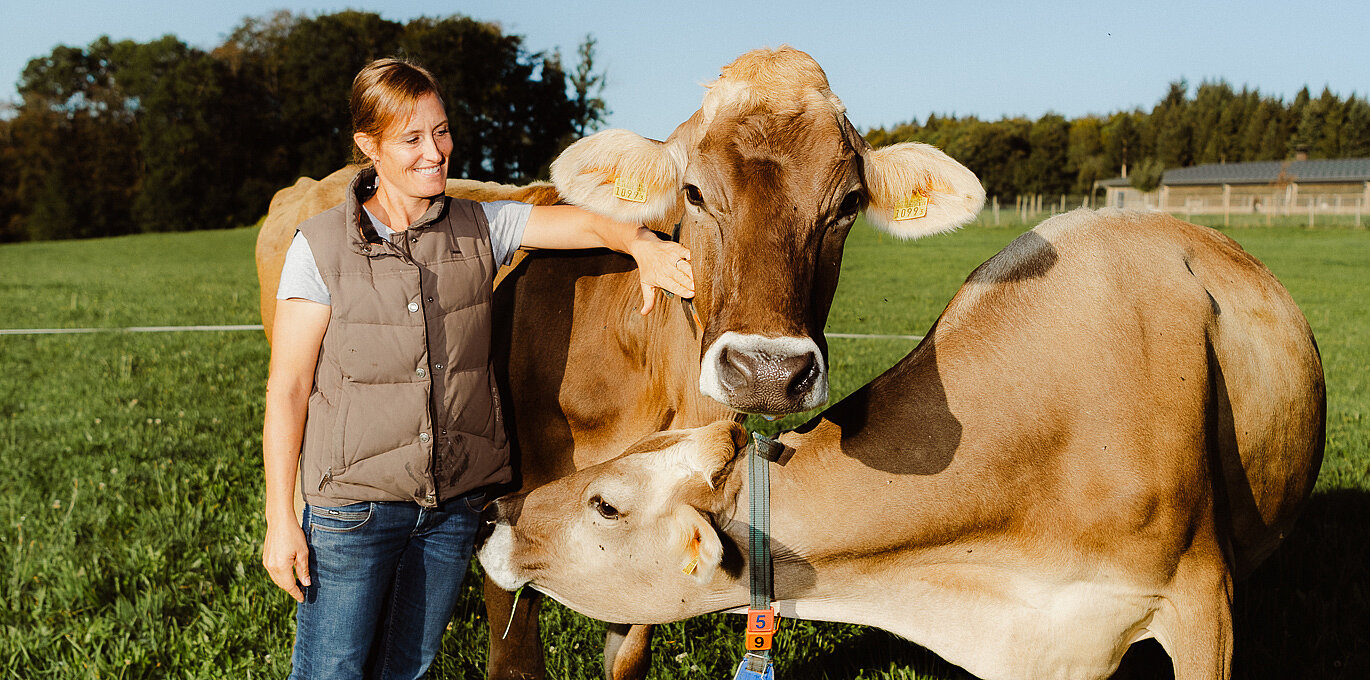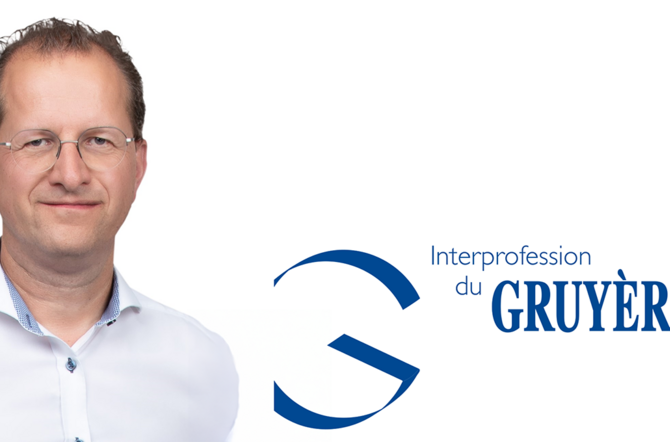Adapting to preserve the dairy industry

"In economic terms, men work for the maximum. We women aim for the optimum."
Catherine Meister-Schwager, milk producer in Corcelles-le-Jorat
Determined. At Ferme des Chênes in Corcelles-le-Jorat, Catherine Meister-Schwager looks after the milk production, genetics and health of 55 head of cattle. Coached by a homeopathic pharmacist, she has drastically reduced the use of antibiotics in her herd. A winning bet after a few years of transition: thanks to a strengthened immune system, the cows have less mammary inflammation, and the quality of the milk is both remarkable and much more stable. The farmer took over her father's farm in 2013. She is convinced that, for sustainable production, it is essential to get off the beaten track. As the owner, she makes strategic decisions in line with her convictions.
What is the specific contribution of women to the profession? Catherine Meister-Schwager sums it up as follows: "In economic terms, men work for the maximum. We women aim for the optimum." She hopes that they will work together in a complementary and sustainable way. At Ferme des Chênes, climate change is already having an impact on forage yields: "Solutions are needed, because we don't want to give up milk production. That would jeopardise the surrounding farming and cheesemaking structures," she stresses.
There is this challenge and so many others: the demands of consumers, technological developments, the decline in vocations: "There is an urgent need to adapt production methods for Le Gruyère AOP to the new global living conditions," she insists. Delegate of the Interprofession du Gruyère since the beginning of 2023, she intends to strengthen the voice of producers and work towards a system based on solidarity: "Producers, cheesemakers and ripeners: we are all interdependent. The Interprofession is the place where we can work together to preserve the activities surrounding the production of Le Gruyère AOP," she concludes.






